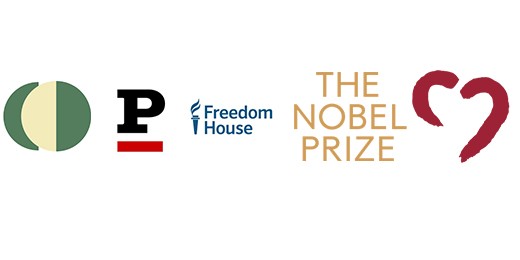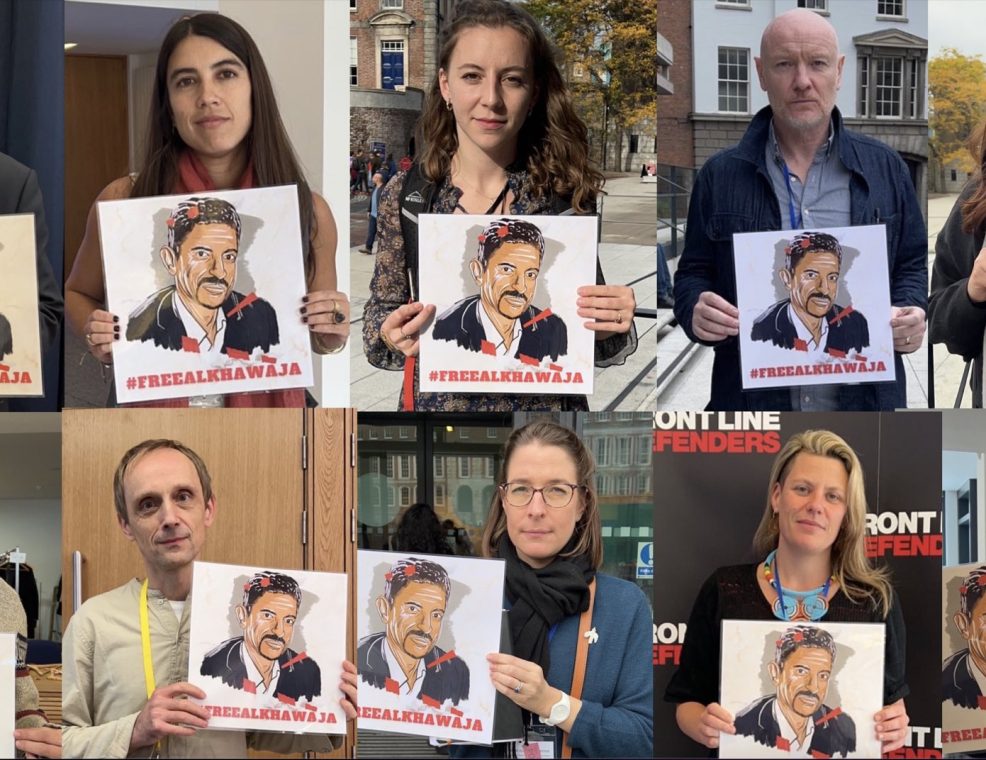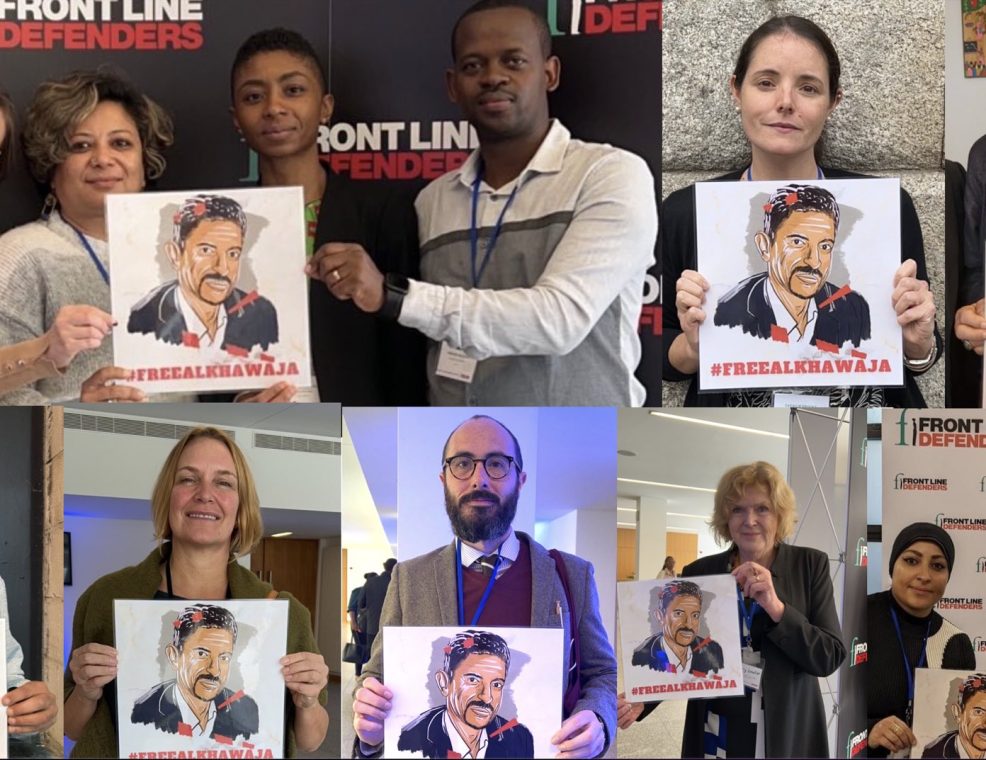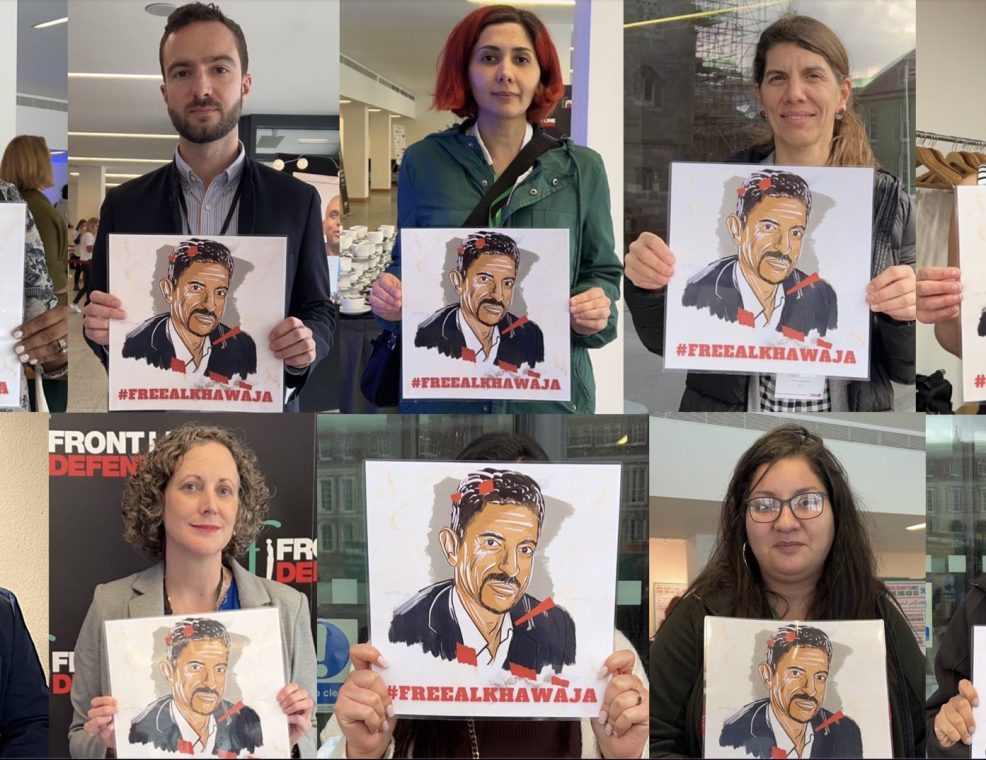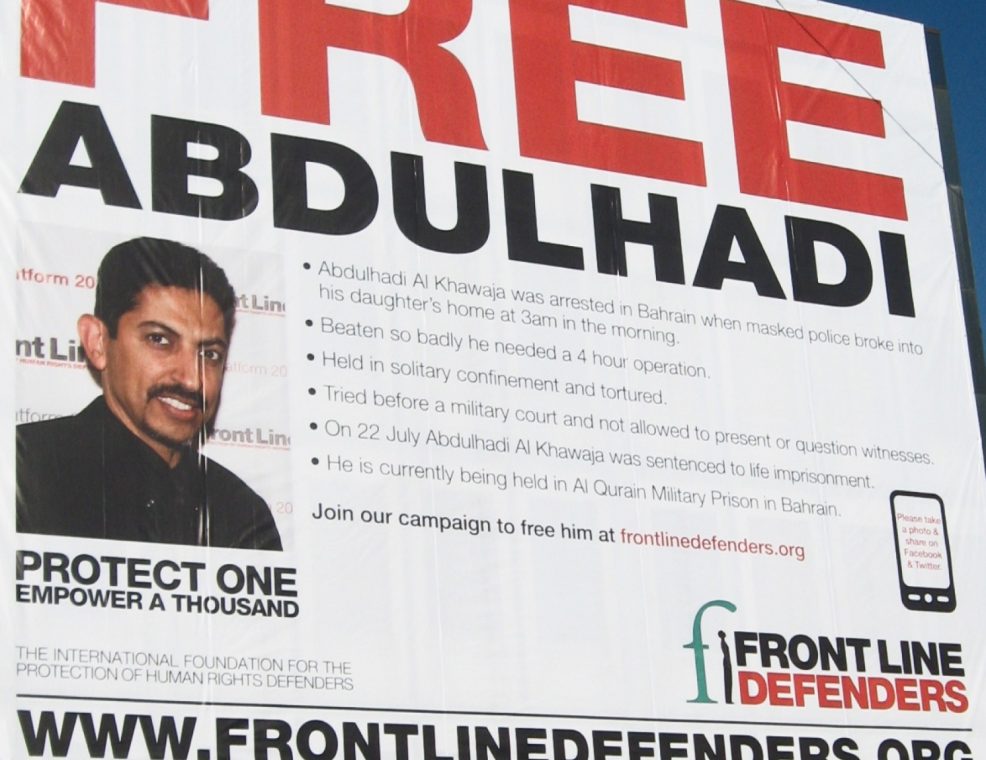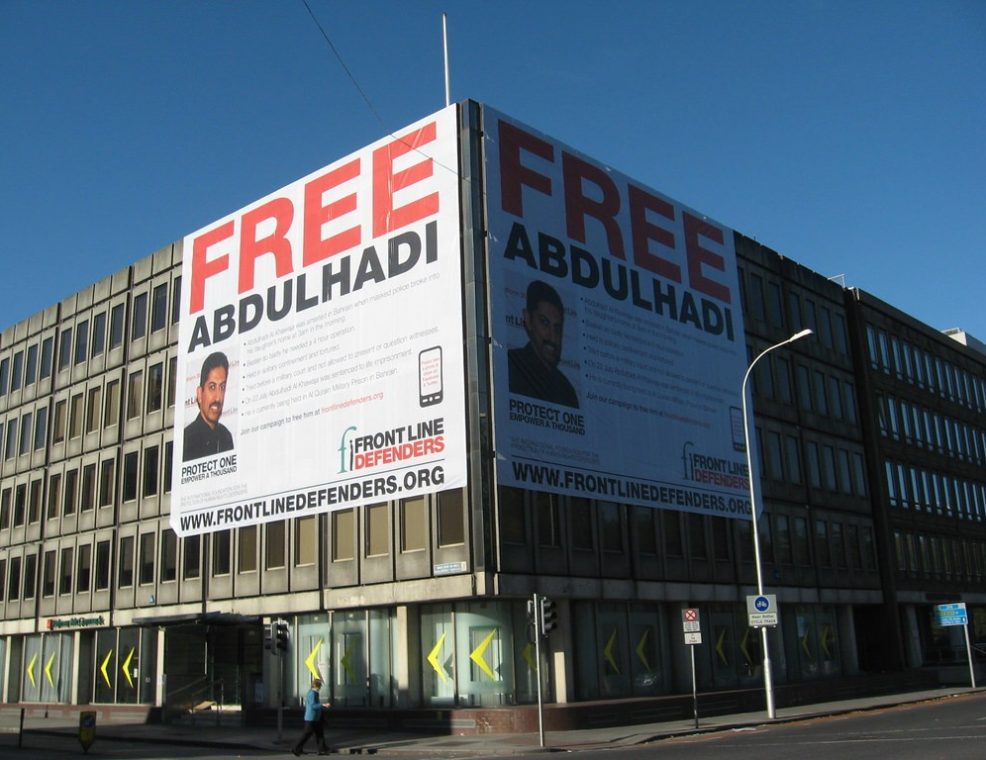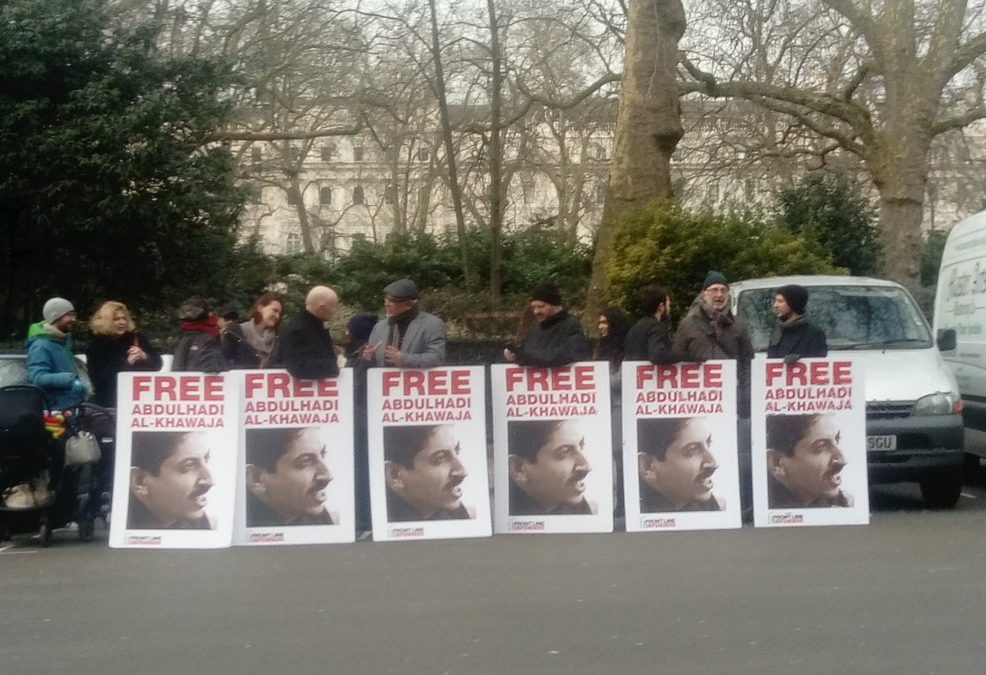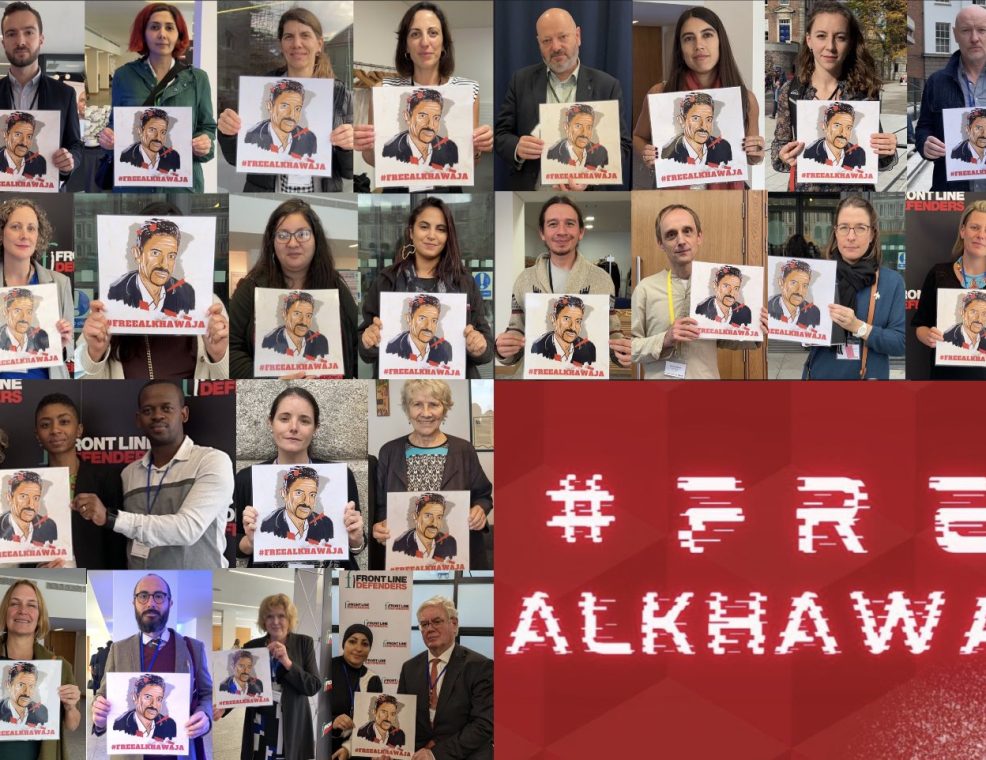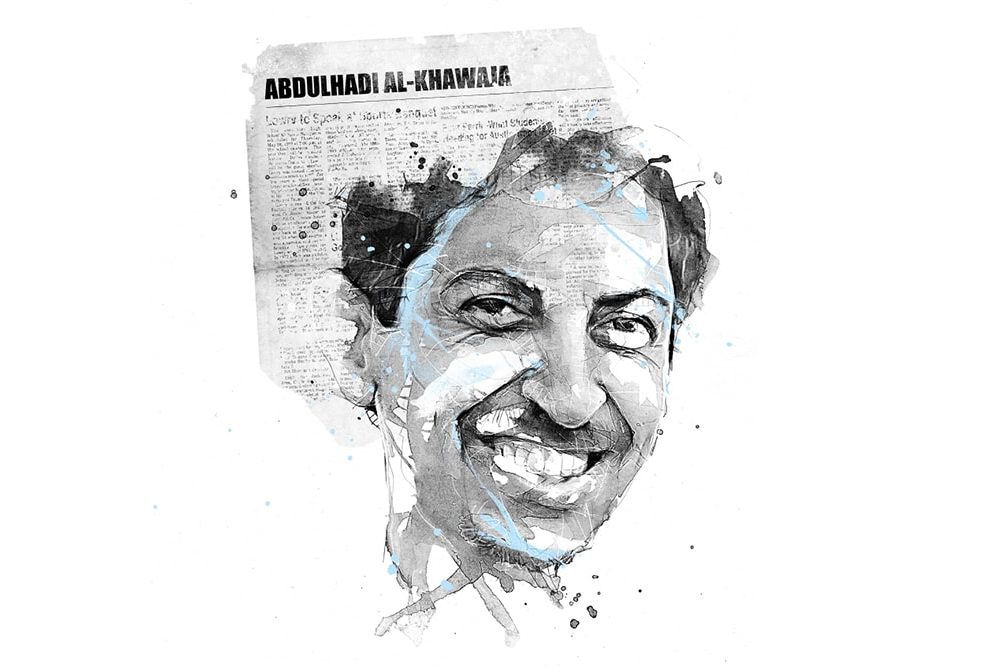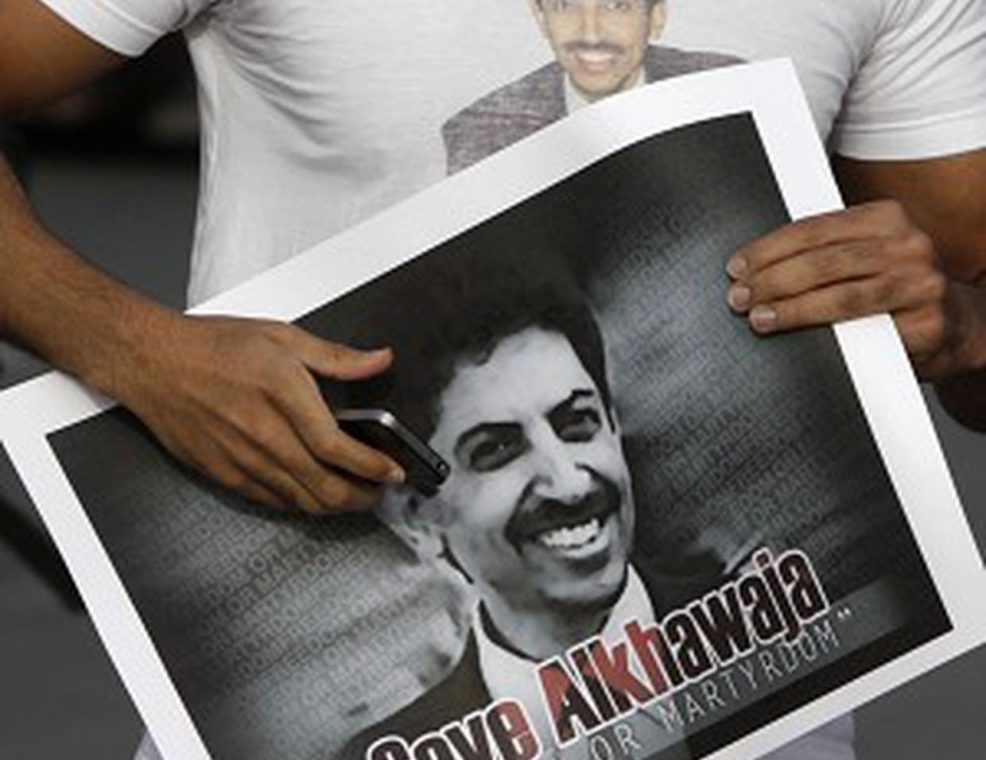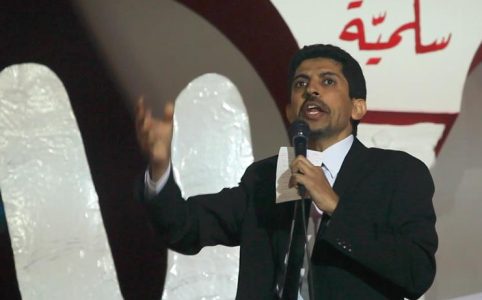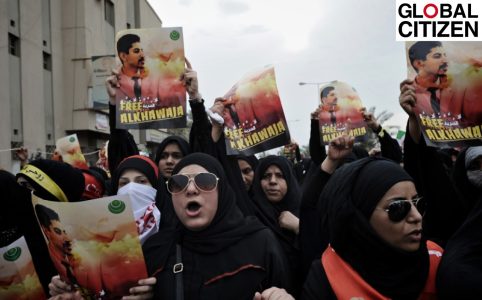About Abdulhadi Al-Khawaja
About Abdulhadi:
Abdulhadi Al-Khawaja is a prominent human rights defender who has been imprisoned for life in Bahrain for his activism. He has faced torture, abuse, and solitary confinement while in prison and has been denied access to adequate medical care. Despite these challenges, Al-Khawaja has continued to work for human rights and has received numerous awards for his efforts.
His early activism:
Abdulhadi Al-Khawaja became engaged in activism in the 1970s after studying abroad. Working to improve human rights in Bahrain, his Bahraini citizenship was revoked, which forced Al-Khawaja and his family to live in exile.
His life in Denmark:
Al-Khawaja and his family were granted political asylum in Denmark in 1991 where they quickly learned Danish and became active in Danish society. From Denmark he founded the Bahrain Human Rights Organization (BHRO) and worked with the UN for the release of political prisoners in Bahrain. He was the first civil society representative to speak at a Universal Periodic Review session in Geneva.
Al-Khawaja and his family lived for 12 years in exile in Denmark where they became Danish citizens.
The Return To Bahrain:
The family returned to Bahrain in 2001 because the government had shown signs of reform willingness and promised to re-grant people who had been exiled Bahraini citizenship. Al-Khawaja went back with a clear intent to improve the human rights situation in the country.
Between 2001 and 2011, Al-Khawaja was subject to threats, harassment, detention, unfair trial and physical assault, because of his peaceful activities calling for democratic and human rights reforms in Bahrain during this time.
Alkhawaja’s Civil Society work:
– Middle East and North Africa Protection Coordinator for Front Line Defenders
– Co-founder the Gulf Center for Human Rights (GCHR)
– Co-founder and director the Bahrain Center for Human Rights (BCHR).

February 2011 uprising:
Inspired by protests in Tunisia and Egypt, Bahrain witnessed a series of peaceful anti-government protests, most prominently from 14 February 2011 – 18 March 2011. Calling for, among other things, the drafting of a new Constitution, ending economic and human rights violations, and fair elections and freedom, the demonstrations were brutally suppressed by the authorities resulting in the deaths of nearly 100 people and the arrest and torture of thousands. During the uprising, Al-Khawaja led peaceful pro-democracy protests across Bahrain and organized peaceful awareness-raising and human rights education.
Alkhawaja’s political detention:
On 9 April 2011, Al-Khawaja was violently arrested, resulting in multiple injuries, most notably four fractures in his cheekbone and jaw. In June 2011, Al-Khawaja was tried by a special military court together with other well-known opposition leaders, known as the “Bahrain 13”. Here, Al-Khawaja was sentenced to life in prison, despite grave concerns from the international community about unfair trials that did not comply with Bahraini criminal law or international fair trial standards. Upon receiving the sentence, Al-Khawaja raised a fist and said “we will continue on the path of peaceful resistance” due to which he was taken outside the courtroom and beaten.
During his arrest and time in prison, Al-Khawaja has been systematically tortured, physically and sexually abused, and subjected to lengthy solitary confinement. He has been denied access to adequate medical treatment. As a direct consequence of his imprisonment, torture and several hunger strikes, Al-Khawaja’s health is in dire need of attention.
Human Rights Awards:
– Martin Ennals Award for Human Rights Defenders 2022,
– Dignity World Without Torture 2013,
– Politiken Freedom Award 2012
– Freedom House Freedom Award 2012.
– a Nobel Peace Prize nominee in 2013 together with his daughters, Zainab and Maryam Al-Khawaja.
